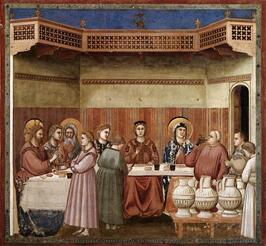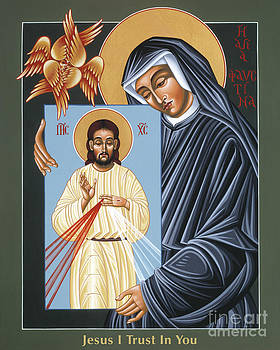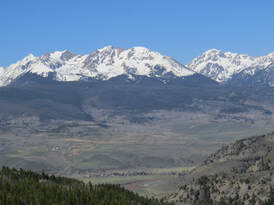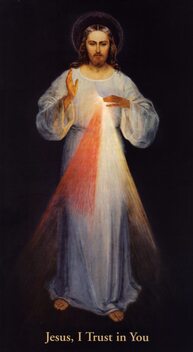 Any parent or anyone who has ever worked with children knows that once a toddler understands the meaning of the word “no” they will start exercising its power. We are all born rather strong willed and although we do not remember our own personal ‘terrible twos’ everyone goes through that phase. If all goes well, we outgrow it, (or at least we should). The mature have learned that their own will is not always the way things will be, or perhaps should be, done. But even the most docile do not naturally like having things go against their own will. That we want our way and not God’s is at the heart of original sin; we ‘deem’ what is ‘fair’ and in doing so, we arrogantly act as if we know better than God does. That is why one of the most profound lines in Scripture is the response of Mary to the archangel Gabriel when he announced that she would be the mother of the Son of God: “May it be done to me according to your word.” (Luke 1:38) Mary did not grow up knowing this would be the role she had been chosen to fulfill. Therefore when she assented, Mary was knowingly letting go of many thoughts, dreams, and expectations for her future life, entering into an immense unknown. Years later at a wedding in Cana, she would reflect her lifelong commitment to trusting God completely when in reference to Jesus she said, “Do whatever He tells you.” (John 2:5)*  The first of Mary’s two statements was directed at God. She was willing to enter into the unknown because of her great love and trust in the Lord. What followed was a time of joy, but also great suffering: she had revealed her pregnancy to Joseph while they were betrothed, she had fled with her family when Herod wanted to murder Jesus, forced to live in a foreign land for a few years; she lost Jesus in the crowded city of Jerusalem for a few days, and sometime later became a widow. But in all of it she always did the will of God, and thus was able to let go of Jesus when it was time. She did not know that it set Him on the road to death, but as a widow, letting go of her only Son was a huge ‘yes’ to God. Therefore, her second statement to “do whatever He tells you” was directed at us, too: if we do as Jesus instructs, we accept His wisdom, which is far greater than our own. Further, we put ourselves into His hands so that even when we suffer, He is there to comfort and guide. There are no better hands to be in than God’s.  Conforming our will to God’s will is certainly not easy. It wasn’t for Mary, nor was it for any of the other Saints. But a common denominator in their lives is that they placed themselves in God’s hands, allowing His will to be done. One such saint is St. Maria Faustina Kowalska, (1905-1938, feast day October 5). She suffered greatly during her life, especially when she was in the convent, but with the grace of God, she was able to put aside her will and in love, do that which God called her to do. Her life echoed the words of Mary, doing what Jesus asked of her. St. Faustina had visions of Jesus and Mary which she wrote about in her Diary and from which we can learn an immense amount about the “oceans of mercy” offered by Jesus. Because of St. Faustina, we have a special prayer, (the Chaplet of Divine Mercy), a wonderful image of Jesus which she described and had painted, and we celebrate Divine Mercy Sunday on the Sunday after Easter.** It is clear she put God’s will ahead of her own.  If we want to know how to do what God tells us, we need look no further than the Scriptures. In Micah 6:8 we learn what the will of God is for each one of us: “Do justice, love goodness, and walk humbly with your God.” In short, a life of prayer and discernment, and acting on it, is God’s will for us. Jesus taught that we are to love one another as He loves us: love, and the mercy which flows from it, is the foundation to ‘doing justice’ and this is the will of God. Therefore, we must continually return to the Gospels and learn from Jesus and from Mary how to live with trust in God’s presence no matter what befalls us, to trust in the gifts God gives which enable us to love, to bring peace through working for justice with mercy, and to recognize that sometimes the smallest things, if done with great love, can become the greatest miracles of all.  St. Faustina wrote, “Act in such a way that all those who come in contact with you will go away joyful. Sow happiness about you because you have received much from God; give, then, generously to others. They should take leave of you with their hearts filled with joy, even if they have no more than touched the hem of your garment.” Let us do whatever He tells us by living as St. Faustina suggests. What we are called to do is not always complicated, but it means letting go of our chosen way of doing things and doing as Jesus would. If we trust in Him we can make a difference in many lives, including our own. May we ask Mary and Jesus to help us to have the courage to do what God wills rather than what we will! May we ask the intercession of St. Faustina for Divine Mercy to be at the center of our actions! And may we learn to trust in Jesus and thus to do whatever He tells us! Let us meet in the heart of Jesus! Peace! ©Michele L. Catanese *In saying, "Do whatever He tells you," Mary was letting go of any future life with Jesus in her home, allowing her will to yield to God's. Once Jesus performed the miracle of turning water to wine, His public ministry began. Mary was well aware that once Jesus left home, she would be quite vulnerable since a widow was always put in the care of a son in Jewish culture. But she was also telling us to listen to what Jesus, as God, teaches in His gospel message. **If you want to know how to pray the Divine Mercy Chaplet click here: www.usccb.org/beliefs-and-teachings/how-we-teach/new-evangelization/year-of-faith/how-to-pray-the-chaplet-of-divine-mercy Images: 1. My photo, Isle of Skye, Scotland. 2. Fresco painting, The Wedding at Cana, by Giotto. This is found in the Scrovengi Chapel, Padua, Italy. 3. Icon, St. Faustina Kowalska, Apostle Of Divine Mercy by Fr. William Hart McNichols. If you are interested in obtaining a copy you can purchase one at fineartamerica.com/featured/st-faustina-kowalska-apostle-of-divine-mercy-094-william-hart-mcnichols.html 4. My photo, taken near Silverthorne, Colorado. 5. Painting commissioned by St. Faustina Kowalska and her religious community of Jesus as Divine Mercy. NOTE: In compliance with GDPR rules, I wish to make it clear that I do not gather any information on any of my readers at any time. Comments are closed.
|
Heart Speaks to Heart
|

 RSS Feed
RSS Feed

